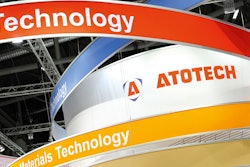A recent international agreement calls for dramatic reductions in the use of a common refrigerant chemical, but meeting the world's cooling needs with replacement compounds will be complicated.
One of the fastest-growing alternatives, for example, drew criticism in past years because it is mildly flammable — and increasingly used in vehicle air conditioning systems.
The company that developed it, however, said those claims have been debunked and lauded the chemical’s potential benefits for the environment.
Hydrofluorocarbons, or HFCs, largely replaced chlorofluorocarbons in air conditioners and refrigerators due to the latter's impact on Earth's ozone layer. HFCs, however, are a far more potent greenhouse gas than carbon dioxide, which prompted years of talks that led to the agreement last weekend at a conference in Kigali, Rwanda.
The New York Times reports that long before those talks began, a scientist at a Honeywell lab in Buffalo, N.Y., began running computer models to search for a more climate-friendly refrigerant.
Honeywell and Chemours — the chemical operations spun off by DuPont last year — ultimately developed a compound called HFO-1234yf, which breaks up before it traps heat in the atmosphere.
The chemical, however, could pose a minor fire risk and — like HFCs — emits the dangerous chemical hydrogen fluoride at high temperatures.
The race is on to find more stable alternative chemicals, but HFO-1234yf is already becoming prevalent in cars since it is one of a handful HFC replacements currently cleared by government regulators for use in vehicles.
“None of the people in the car industry I know want to use it,” Axel Friedrich, a former German environmental official, told the Times.
Honeywell, meanwhile, noted that Daimler was the only automaker to express concerns about the chemical and that the German company now uses it. Honeywell said that 18 million cars worldwide will utilize 1234yf by the end of this year – and that its heat-trapping benefits would equate to removing 3 percent of the global car fleet from the road.
“All major global automakers are in production today with vehicles designed to use HFO-1234yf because it is a near drop-in solution, proven safe for intended use, and capable of addressing both fuel efficiency and greenhouse gas emissions,” Ken Gayer, VP and general manager, Honeywell.
Other environmental advocates said that the safety concerns were overblown and suggested that manufacturers were actually concerned about the higher cost of HFO-1234yf.
Honeywell and DuPont, the Times previously reported, were also among the major proponents of the Kigali agreement — in large part because the market for alternative chemicals could be quite lucrative.
The Wall Street Journal reported that by 2020, Honeywell expects that its Solstice line of coolants will exceed $1 billion in annual revenue.






















